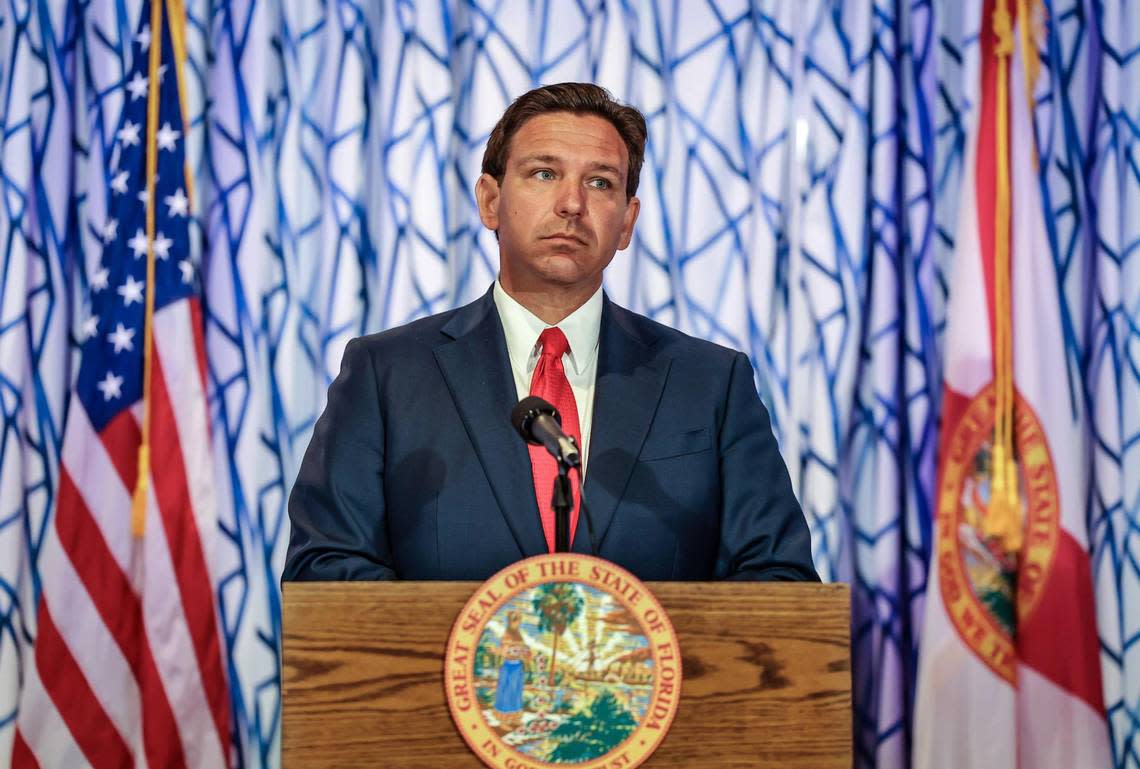Stinky Florida? DeSantis paints scary picture of weed amendment but misses key point | Opinion

Gov. Ron DeSantis is appealing to voters’ fears of streets and businesses being overcome by the stench of pot smoke if a proposed Florida constitutional amendment is approved this fall.
It’s classical DeSantis: Amp up mental images of children under threat, choking on second-hand smoke — except he fails to mention that he and lawmakers have the power to pass laws to prevent that, even if the measure passes.
DeSantis has, on more than one occasion, claimed that if voters pass Amendment 3 to legalize recreational marijuana for adults 21 and over, the state will turn into some kind of stoner’s paradise where people would be allowed to smoke anywhere they want, including in public.
Speaking of other states that have legalized weed, he said last month, “I’ve gone to some of these cities that have had this everywhere. It smells, there’s all these things.”
During a stop in Hialeah Gardens last week, he said Amendment 3 will hurt Floridians’ quality of life — “You will smell it when you’re walking down a lot of these streets.”
“I don’t want to be able to go walk in front of shops and have this. I don’t want every hotel to really smell,” DeSantis said at a March news conference. “I don’t want all these things. But if you’re saying you can’t regulate it or you can’t limit it — which, that’s how I read that — that could be a big, big problem.”
DeSantis could address his presumed concerns through regulation; it’s what Florida already does when it comes to cigarette and alcohol usage. If voters pass Amendment 3, the Legislature could enact laws to ban marijuana from public places like parks or schools. The text of the amendment states: “Nothing in this amendment prohibits the Legislature from enacting laws that are consistent with this amendment.”
“... the Governor is mistaken about what the amendment does,” lawyers Glenn Burhans and John Bash wrote in a March Tampa Bay Times op-ed. Both represented the amendment sponsors before the Florida Supreme Court, which approved the ballot language of Amendment 3 last month.
“If voters approve the amendment, the Legislature will have full authority to regulate or ban the use of marijuana in public places — authority that it already exercises for tobacco and alcohol,” Burhans and Bash wrote.
Is the governor truly mistaken or misrepresenting the measure?
If at least 60% of voters approved Amendment 3, it will be up to lawmakers — and DeSantis — to pass and sign so-called implementing bills to create licensing requirements for the production, distribution and sale of marijuana as well as rules on the time, place and manner of marijuana use, Steve Vancore, spokesman for Smart & Safe Florida, which sponsored the measure, told the Herald Editorial Board.
“We would strongly support that,” Vancore said. “We don’t want Florida to become the stinky state.”
Indeed, Florida already prohibits the use of medical marijuana, approved by voters in 2016, in public places. South Florida college campuses also ban it, along with other types of smoking and vaping, the Herald reported. When it comes to tobacco smoking, that’s prohibited in most public and private places, including restaurants, under Florida law.
Lawmakers could — and should — extend those same restrictions to recreational marijuana. Marijuana smoke is an obnoxious nuisance and people shouldn’t pay for others’ pot use through second-hand smoke. Neither should families be afraid to take their children to a school or park.
Floridians might have different reasons for supporting or opposing Amendment 3. Learning that the state has the ability to impose restrictions on where people can smoke might not be enough to alleviate the fear that smokers will violate those laws if they are not properly enforced. In the end, some voters might feel that the cons of pot legalization outweigh the pros.
These are legitimate concerns, not based on a skies-are-falling scenario painted by a governor with a penchant for hyperbole.
Click here to send the letter.


